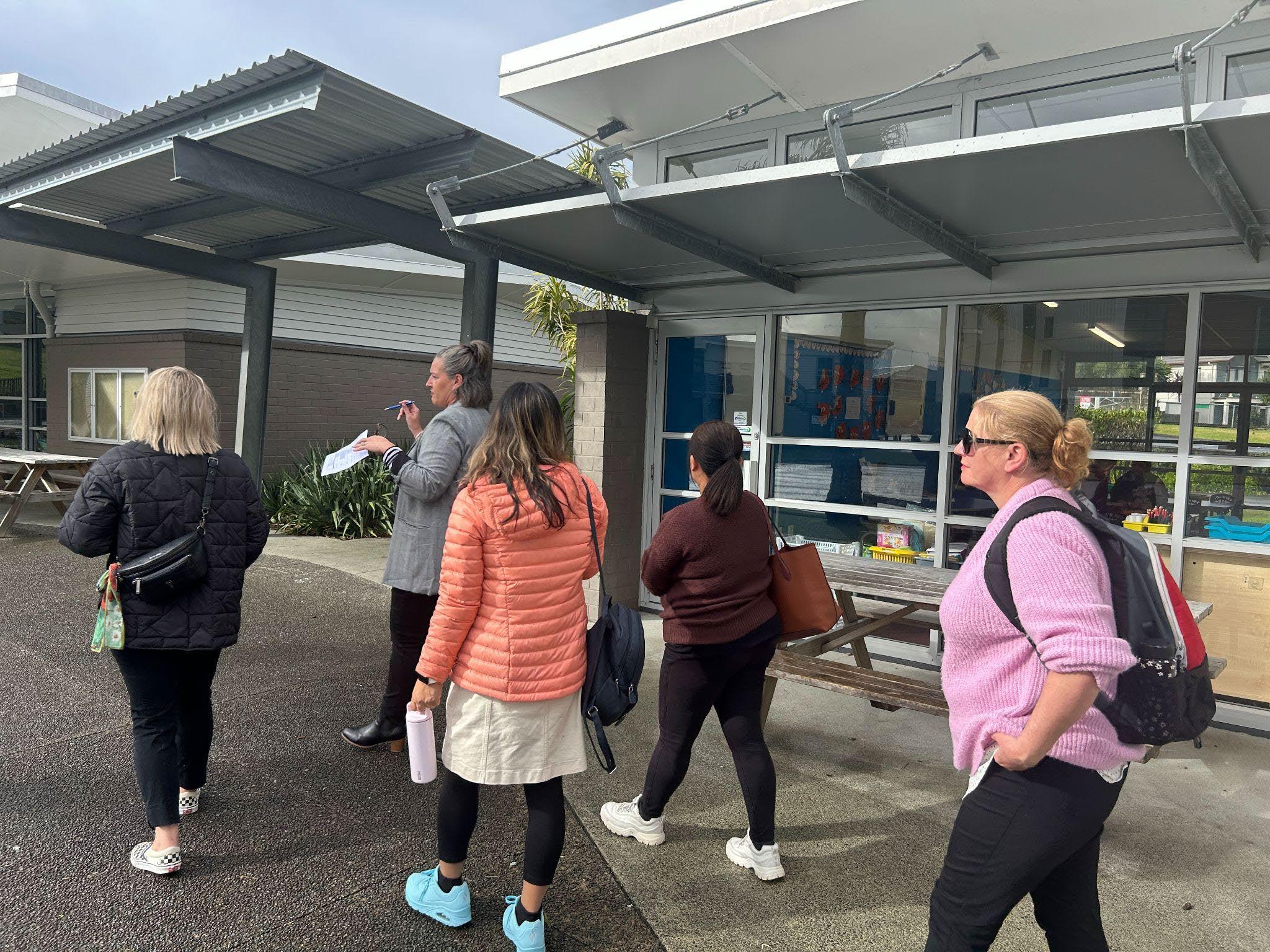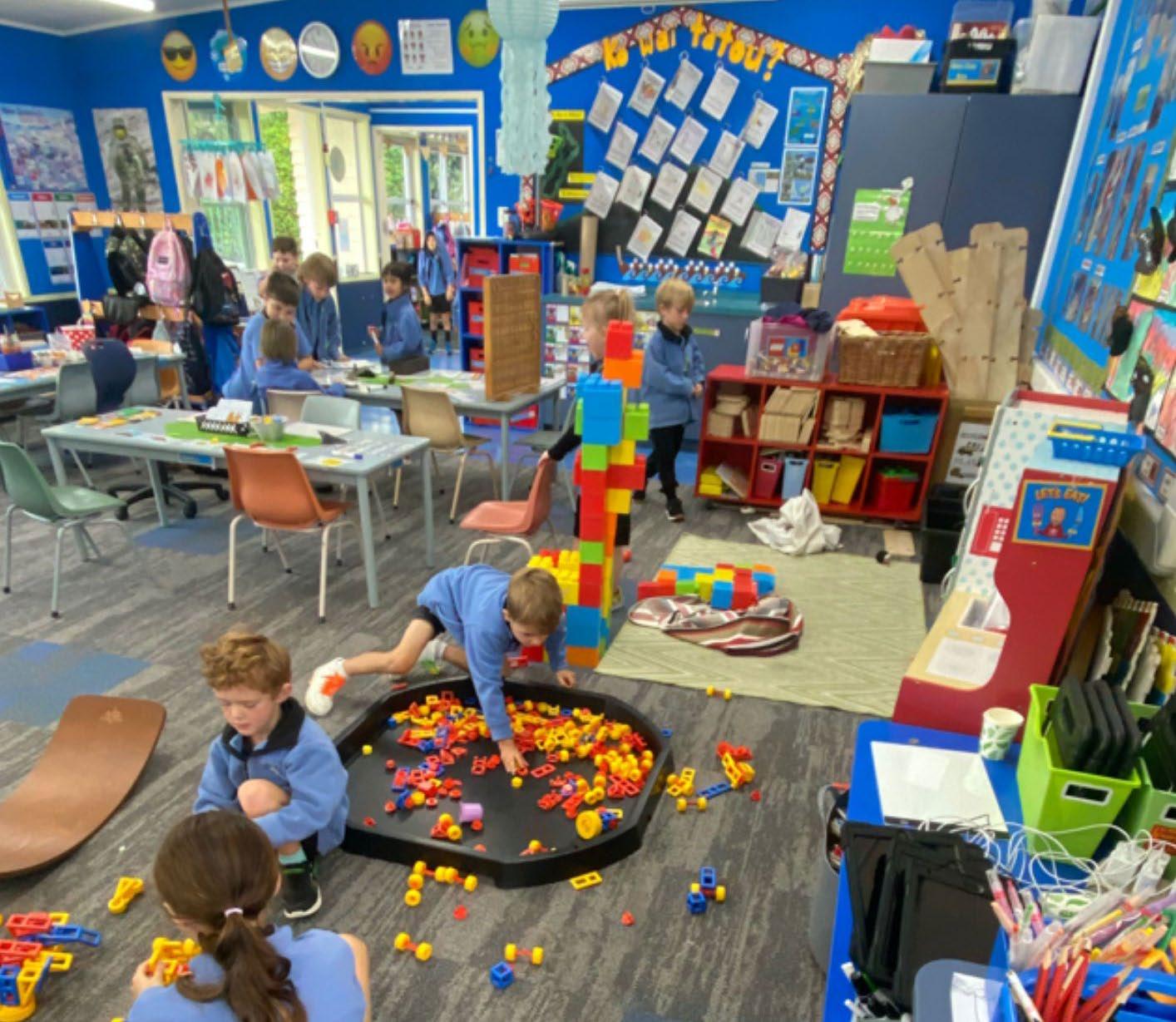
6 minute read
Reimagining school transitions through global insights
From Tāmaki Makaurau to Tokyo and Toronto, Margaret May Blackwell Fellow Dr Jo Knox explores how transitions from early learning to school can be strengthened –with insights that resonate across Aotearoa.
Educators from Torbay and Sherwood Schools share how their own mahi reflects a shared vision of making every child’s first step into school a supported and joyful one.
What does it feel like to step into a new environment –unsure, and quietly hoping for belonging? This was a question that lingered in Dr Jo Knox’s mind during her international research journey as a Margaret May Blackwell Fellow, visiting early learning settings and schools across Japan, Canada, Australia and Singapore.
“While I enjoyed the independence that travelling alone came with, at times the experience was stressful, daunting and a little scary,” she says. “Occasionally, I felt like the outsider with everyone else on the inside.”
That sense of uncertainty led her to reflect deeply on how children experience transitions – especially those starting school for the first time.
“Imagine turning up to a class that’s already been together for weeks or months, and feeling like all eyes are on ‘the new kid.’ It really made me appreciate how powerful it is when transitions are planned, structured and supportive – for every learner.”
Jo’s fellowship focused on maths-related transitions between early learning and school. As a mathematics facilitator, she wanted to understand how educators across cultures support young learners’ sense of identity, belonging and capability – especially when it comes to maths.
“Internationally, teachers found it surprising that in New Zealand, children can start school any time after they turn five. They couldn’t comprehend how that might affect learning cohesion or teaching design.”
But her work goes far beyond critique. Instead, Jo highlights the possibilities and the practices – the practical, relational and joyful steps that can make all the difference.

Building whanaungatanga
Closer to home, those ideas are being brought to life by teachers like Sarah Kilkolly, assistant principal at Torbay School.
Five years ago, she brought together a small group of early learning services and schools, sparking what would become a dynamic network of educators committed to improving transitions.
“Building whanaungatanga is key,” says Sarah. “Connections between early learning educators and schools, strong relationships with whānau and a tuakana–teina relationship within our schools strengthen transitions.”
Today, the network includes nine early learning services and has become a space for professional development, shared events and a collaborative approach to supporting children and whānau. One of its standout initiatives is the Tuakana–teina Big Buddy programme.
Inspired by the book Crossing the Border (Hartley et al.), the programme sees Year 5 students paired with early learners as their ‘big buddy,’ with reciprocal visits and transition books.
“This way, relationships form before children even start school,” says Sarah. “By the time they arrive on their first day, they already have a familiar face waiting to show them the ropes.”
Year 5 students were chosen deliberately as the big buddies for new entrants – they have enough time in the year to build strong bonds and when they progress into Year 6, their role evolves into quiet background support.
Playful starts, powerful impact
For some tamariki, the most important support for their sense of belonging is in how the day begins.
At Torbay School, deputy principal Susan Ye used her sabbatical to explore how play-based learning could ease transitions and better support tamariki to settle. Her research, including visits to Australian settings, inspired the introduction of Wā Kitea – a daily window for playful exploration in Years 0–2.
“We found that starting each day more playfully with Wā Kitea time had a huge positive impact on children transitioning from their early childhood experiences to school,” she says.
Structured yet flexible, Wā Kitea allows children to explore at their own pace, reconnect with familiar experiences from ECE and begin the day with a sense of ease.

A shared beginning
At Sherwood School, deputy principal Carolyn Crow is also seeing the benefits of change. The school adopted cohort entry in 2023 after consultation with their community –meaning children now start in groups at the beginning or middle of each term.
“Previously, children would start school on their birthday, sometimes alone or without knowing anyone,” explains Carolyn. “Now, they arrive with peers, and their families build connections too.”
This group approach enables orientation visits, structured transition programmes and a greater sense of collective beginning.
“It reduces anxiety – both for the child and the whānau,” says Carolyn.
Jo agrees that the power of shared beginnings cannot be overstated. While her international visits showed a variety of cultural approaches to starting school, the common thread was a consistent, collaborative entry point.
“It’s not just about the curriculum – it’s about creating memories, milestones and moments of belonging,” she reflects.
Transitions through a maths lens
As part of her fellowship, Jo also explored how maths learning is introduced in different cultural settings. She saw how shared starts enabled teachers to design coherent and connected learning journeys.
“It meant that teachers could plan for everyone having had similar foundational experiences,” she explains. “In maths, this is so important – a shared language, shared tools and a sense of confidence are all crucial in those early weeks.”
To test some of her insights, Jo conducted small-scale research using maths Progressive Achievement Test (PAT) data from a local school. Jo’s findings aligned with largerscale research by Ali and Menclova (2024), which found that one additional month of early schooling increased the likelihood of achieving top secondary qualifications and university entrance.
But Jo’s focus remains on the learner – their emotional, social and academic start to school. She continues to advocate for intentional, inclusive transitions that build identity and capability.
Creating memory, not just entry
“One of my reflections during travel,” shares Jo, “was watching those travellers with priority boarding – the ones first on the plane, the first with their bags, the first at the hotel. It made me wonder about how that plays out in education.
“Some children, just by birthdate or other factors, start with more – more time, more confidence, more familiarity. Our job as educators is to lift everyone to that sense of ‘priority’ – of being seen, known and supported.”
Whether through big buddy relationships, playful starts, or cohort support – Jo, Sarah, Susan and Carolyn are part of a growing group of educators making sure that every child has the strongest possible start.
As Jo puts it, “Transitions are more than an administrative process. And the way we begin matters – not just for learning, but for life.”
You can read more about Jo’s research in Transborder Experiences: Learnings from my travel fellowship about transitions to school











